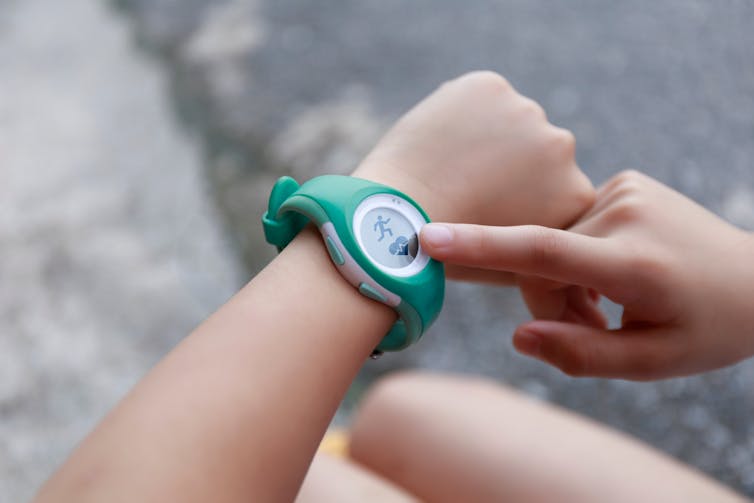- About
- News & Events
- News
- News archive
- Spring 2025
- Fall 2024
- Meet the FCAT Social Media Ambassadors
- Using the MDM to Springboard into a Senior Product Designer
- Featured Alumnus: Emma Jean is building a career in journalism and a network of FCAT alumni
- SFU Publishing Director Hannah McGregor's new book explores everyone's favourite dinosaur movie and what it means to be angry, monstrous, and free
- From MDM to Game Industry Success: An Alumnus' Journey
- Scholarly Impact of the Week: Handbook explores essential role of ethnic media
- MDM Alumnus Launch Neesh: A Safe Digital Space for the LGBTQ2S+ Community
- Summer 2024
- New book edited by SIAT Senior Lecturer Michael Filimowicz offers a comprehensive overview of sound design
- New Certificate in Sound offers interdisciplinary perspectives
- FCAT & SIAT partner with two BC school districts to bring new learning opportunities to indigenous students
- Lita Lising and Kiran Sonea are the inaugural recipients of the Shaun Kenneth Gauthier Memorial Award
- Communication alumnus and renowned acoustic ecologist Hildegard Westerkamp receives honorary Doctorate of Fine Arts from SFU
- New award nurtures artists to push creative limits
- SCA's Laura U. Marks Receives Guggenheim Fellowship
- Spring 2024
- Congratulations to the 2023/2024 major graduate award recipients from FCAT
- "The Fold", a new book from the SCA's Laura U. Marks offers a philosophy for living in an infinitely connected cosmos
- IUPP student Morgan Peequaquat finds her voice and a community while organizing the Skoden Indigenous Film Festival
- SFU Publishing Director Hannah McGregor's new book asks "Can podcasting save academia?"
- Scholarly Impact of the Week: Understanding Authenticity Age Information Disorder
- MDM alumnus wins 2024 Emmy for Outstanding Visual Effects for The Last of Us
- Meet Sorren Jao, 2023 Lighthouse Lab Prize Recipient
- FCAT scholars awarded Community Engagement Initiative grants for their innovative work
- Going beyond diversity and inclusion: A Day with Dr. Kim TallBear
- Fall 2023
- Summer 2023
- SCA's Arne Eigenfeldt in The Conversation: Why the growth of AI in making art won’t eliminate artists
- FCAT hosts Safe Space for White Questions online discussion
- Our Way and The Klabona Keepers among 5th Annual Skoden Film Festival award winners
- FCAT supports northern BC communities with increased learning opportunities
- Master of Digital Media Grads Tackle Plastic Waste Blanketing Our Oceans with Group Shopping App
- June 2023 Convocation Featured Student Profiles
- Introducing FCAT Research Spotlight
- The School of Communication's 50th Anniversary: From 1973 to 2023
- Spring 2023
- Cody Sawatsky Memorial Plaque Unveiled at the SFU Surrey Campus
- Scholarly Impact of the Week: Michael Filimowicz
- School of Interactive Arts & Technology professor Wolfgang Stuerzlinger inducted to prestigious VR academy
- Meet Nico Hernandez, 2022 Lighthouse Lab Prize Recipient
- Jon Corbett Joins School of Interactive Art and Technology
- Welcome Kota Ezawa, the 2023 Spring Audain Visual Artist in Residence
- MPUB Alumnus Claire Cavanagh Becomes Literary Agent
- Alumnus designs Canucks Lunar New Year jersey
- 2023 Skoden Indigenous Film Festival
- How the Online Streaming Act will support Canadian content
- Meet Jonathan Newman, the 2022 Recipient of the Cody Sawatsky Memorial Award in Gaming
- Fall 2022
- Eight SFU innovators bestowed with Canada’s highest academic honour
- SIAT Convocation Features October 2022
- Graduating Student Sharlyn Monillas Tells Us About Her Time in CMNS
- Centre for Digital Media partners with Ethọ́s Lab to improve Black representation in digital media
- Explore the Surrey Community Open House SIAT Project Demos
- new interdisciplinary technology aid wilderness search and rescue
- Building better democracies through journalism
- Charter alumnus making a big impact through small gifts
- Summer 2022
- FCAT June 2022 Convocation: Looking back
- Meet Contemporary Arts alum Krystle Silverfox
- SFU researchers receive over $6 million to tackle online disinformation, foster data fluencies
- SIAT researchers develop and curate exhibition at Galiano Island’s Yellowhouse Art Centre
- Roll out the red carpet: Surrey students showcase filmmaking talent
- Spring 2022
- FACTS AND FALSEHOODS IN THE TIME OF COVID-19
- Celebrating Black History Month across the Faculty of Communication, Art and Technology
- SFU professor shares experience living and teaching in war-torn Ukraine
- SFU artists and researchers showcase art installation on Surrey’s ‘UrbanScreen’
- Leadership and Agile Production Management micro-credential established in partnership with DigiBC
- Leading with heart: Meet Staff Achievement Award winner Corbin Saleken
- HOW GOOGLE’S SEARCH ENGINE SUPPORTS CONSPIRACY THEORISTS AND HATE FIGURES
- SFU staffer’s commitment to local arts community nets staff achievement award
- Fall 2021
- Fall 2021 Convocation: Looking back
- TikTok/Instagram video contest
- Meet communication undergraduate student Ashran Bharosha
- FCAT Pro Workshop: Professionally Brand Yourself & Create a Digital Portfolio!
- SFU establishes first interdisciplinary and practice-based PhD in contemporary arts in Western Canada
- To design a more ethical app, consider youth well-being
- Peter Anderson: Fighting fires with better emergency communication
- FCAT Alumni Excellence Award winners reflect on their awards and their time in their programs
- This season, give the gift of tech literacy — not addiction — along with that device
- Study identifies link between certain lifestyle activities and reduced cognitive decline
- Summer 2021
- SFU Publishing Launches the Greg Younging Publishing Award Endowment
- Resources and readings to start National Indigenous History Month
- Celebrating Indigenous history and culture during National Indigenous History Month
- Communication honours student studies online conspiracy theories, disinformation
- Making the world a better place: criminology alumnus turned interdisciplinary artist continues academic journey
- FCAT June 2021 Convocation: Looking back
- An invisible polluter: SFU researchers investigate the growing carbon footprint of streaming media
- Low res, high impact: Small File Media Festival raises awareness of the carbon footprint of online streaming
- Welcoming Canada HomeShare to Metro Vancouver
- FCAT faculty members receive tri-council grants to support their research
- Spring 2021
- Winners of the FCAT Student Photo Contest Spring 2021
- Alex Krilow receives first Greg Younging Undergraduate Award in Publishing
- FCAT Student Photo Contest Spring 2021
- Skoden Indigenous Film Festival co-founder and SCA alumnus returns to teach Skoden course
- Communication professor Martin Laba shares what he's learning about remote teaching
- In the rush for coronavirus information, unreviewed scientific papers are being publicized
- Film alumnus Kelvin Redvers receives Governor General’s Meritorious Service Medal
- News archive
- Events
- FCAT Research and Teaching Forum
- FCAT Undergraduate & Graduate Conference
- 2024 FCAT Undergraduate & Graduate Conference
- 2023 FCAT Undergraduate Conference
- 2022 FCAT Undergraduate Conference
- 2021 FCAT Undergraduate Conference
- Cancelled: 2020 FCAT Undergraduate Conference
- 2019 FCAT Undergraduate Conference
- 2018 FCAT Undergraduate Conference
- 2017 FCAT Undergraduate Conference
- 2016 FCAT Undergraduate Conference
- 2015 FCAT Undergraduate Conference
- 2014 FCAT Undergraduate Conference
- 2013 FCAT Undergraduate Conference
- FCAT Convocation Celebration October 2024
- Featured Student
- Featured alumnus
- FCAT Podcasts
- Speakable Podcast
- Season One
- Episode 1: What is the Certificate in Sound?
- Episode 2: What does convocation sound like?
- Episode 3: How did the pandemic impact academia?
- Episode 4: What is the role of AI in the arts?
- Episode 5: Can ChatGPT be a learning tool?
- Episode 6: How did the pandemic impact students?
- Episode 7: What do students think about the purpose and value of university?
- Season One
- FCAT After School Podcast
- Season One
- Episode 0: Welcome to After School
- Episode 1: Finding Your Creative Potential with Prem Gill
- Episode 2: Inclusivity in the Performance Arts with Aryo Khakpour
- Episode 3: Connecting Design and Technology with Sofia Bautista
- Episode 4: Storytelling in Game Design with Mars Balisacan
- Episode 5: Challenging the Status Quo through Art with Shion Skye Carter & Stefan Nazarevich
- Episode 6: Starting Your Own Publishing Company with Jesse Finkelstein
- Episode 7: Finding Happiness in Your Work with Nick Doering
- Episode 8: Making a Name in Independent Filmmaking with Gloria Mercer
- Episode 9: It All Starts with a Strategy with Adam Brayford
- Episode 10: Shifting Places, Shifting Minds with Milton Lim
- Episode 11: Being the Big Piece in a Small Pie with Jordan Yep
- Episode 12: Reimagining Dance Training with Tin Gamboa
- Episode 13: Standing Out as a Creative with Sara Milosavic
- Episode 15: Kristin Richter
- Season Two
- Episode 0: Welcome to FCAT After School Series 2!
- Episode 1: Entrepreneurship in UX Design with Eric Lee
- Episode 2: Community and Adaptability in the Performing Arts with Howard Dai
- Episode 3: Mastering the Art of Publishing with Jazmin Welch
- Episode 4: Navigating your Educational Journey with Broadcaster Simi Sara
- Episode 5: Career Transitions of a Software Engineer with Vic Ong
- Episode 6: Becoming Your Own Boss with Kirstin Richter
- Episode 7: Gaining a Global Outlook with Kai Bockmann
- Episode 8: Finding Your Place in Publishing with Heidi Waechtler
- Episode 9: Exploring Virtual Production with Brenda Medina
- Episode 10: Inclusion in the Design Industry with Priscilla Skylar Lee
- Episode 11: Exploring Study Focus in Contemporary Arts with Sophie Tang
- Season Three
- Episode 0: Season 3 Coming Soon!
- Episode 1: Following Your Creative Passions with Cameron Maitland
- Episode 2: Shame Demons and Queer Sci-fi Horror with Mily Mumford
- Episode 3: The Poetry of Publishing with Charlotte Nip
- Episode 4: Clowning, Failing, and Re-enchanting the Everyday with June Fukumura
- Episode 5: Tech, Meditation, and Leaving a Legacy with Jay Vidyarthi
- Episode 6: Your Work Is Not Your Life with Valentina Forté-Hernandez
- Episode 7: Trying Everything Once and the Future of Media with Jason D’Souza
- Episode 8: Decolonizing and Doing What You Have Always Done with Audrey Heath
- Episode Transcripts
- Season 3, Episode 7: Trying Everything Once and the Future of Media with Jason D’Souza
- Season 3, Episode 6: Your Work Is Not Your Life with Valentina Forté-Hernandez
- Season 3, Episode 5: Tech, Meditation, and Leaving a Legacy with Jay Vidyarthi
- Season 3, Episode 4: Clowning, Failing, and Re-enchanting the Everyday with June Fukumura
- Season 3, Episode 3: The Poetry of Publishing with Charlotte Nip
- Season 3, Episode 2: Shame Demons and Queer Sci-fi Horror with Mily Mumford
- Season 3, Episode 1: Following Your Creative Passions with Cameron Maitland
- Season 2, Episode 11: Exploring Study Focus in Contemporary Arts with Sophie Tang
- Season 2, Episode 10: Inclusion in the Design Industry with Priscilla Skylar Lee
- Season 2, Episode 9: Exploring Virtual Production with Brenda Medina
- Season 2, Episode 8: Finding Your Place in Publishing with Heidi Waechtler
- Season 2, Episode 7: Kai Bockmann
- Season 2, Episode 6: Becoming Your Own Boss with Kirstin Richter
- Season 2, Episode 5: Career Transitions of a Software Engineer with Vic Ong
- Season 2, Episode 4: Navigating your Educational Journey with Broadcaster Simi Sara
- Season 2, Episode 3: Mastering the Art of Publishing with Jazmin Welch
- Season 2, Episode 2: Community and Adaptability in the Performing Arts with Howard Dai
- Season 2, Episode 1: Entrepreneurship in UX Design with Eric Lee
- Season One
- Speakable Podcast
- News
- Future students
- Current students
- Impact
- Get involved
- Research
- Counsellors
School of Interactive Arts & Technology, Technology & Society
This season, give the gift of tech literacy — not addiction — along with that device

Alissa N. Antle, Simon Fraser University
What do wireless speakers, streaming music subscriptions, smartphones and customized game controllers have in common? They are some of the best tech gifts for children and teens this year.
Rounding out the list are a range of smartwatches and fitness trackers, also called e-wearables. And you’re not alone if you’re thinking of buying your child or teen one this holiday season — sales of e-wearables are projected to reach US$73 billion by 2022.
According to a U.K.-based survey by Attest, 33 per cent of Gen Z (aged 24 and under) own or use an e-wearable. As Jim Taylor, author of Raising Generation Tech says, “They’re the next big thing. It’s not whether it becomes a part of the culture but when and how.”
Should parents be concerned?
E-wearables come in a range of prices and offer a variety of functions touted to make us healthier. Most can monitor heart rate, count steps and calories burned and track sleep. And when connected to a smartphone, many can mirror the device.
Child-friendly versions often use GPS for tracking and have an SOS button or one-way voice from parent to children. While e-wearables promise well-being, they may deliver something else entirely. Should parents be concerned?
As someone who’s been researching e-wearables as a means to teach children about mental health for over 10 years, I’ve seen some alarming unintended consequences with their use.
In my research lab, we used a simple brain-sensor headset connected to a digital game to help teach children how to be calm and focus their attention — two important parts of self-regulation that children need to succeed. While our program was successful, I noticed some worrisome side-effects.
Sometimes the systems didn’t work properly or feedback wasn’t accurate and children interpreted these technical failures as their own. We began asking; is it healthy for teens to be continuously tracked and sent feedback on their diets and exercise? How easy might be it be for a child to become addicted to their fitness tracker? Could they stop listening to their own insights and treat the e-wearable as an authority?

Designed around normative assumptions
Most e-wearables, even those designed for children, were designed around normative assumptions and values often reflecting affluent, adult, male and performance-oriented end-users.
The designs and algorithms typically interpret well-being as better performance or more productivity. But for children this “more is better” approach may have a range of negative impacts on their well-being.
This, combined with the often-punitive tone of feedback, is cause for concern. Young people are often more susceptible to social and environmental influences, like peer pressure. Positive and negative feedback is happening during a critical time for the formation of their identity, self-esteem and self-efficacy.
So while young people’s data about their bodies are fed into devices that count everything, I focused my research on understanding how e-wearables might impact their developing sense of self. I looked at how negative messaging might impact the formation of their identity over time.
Negative messaging impacts identity
If an Apple watch tells a child that they are usually closer to completing their exercise goal by this time of day, it’s easy to see how that child may start to think of themselves as lazy. Or during the COVID-19 pandemic, a student’s stress tracker may tell them that they have ongoing high stress levels. This may cause them to develop an identity as someone who is stressed, rather than resilient and coping in the face of a stressful time.
Based on my research, interdisciplinary researcher Alexandra Kitson and I published “1,2,3,4 tell me how to grow more: A position paper on children, design ethics and biowearables.” In it we identified several areas of concern related to how the latest e-wearable technologies might negatively impact a child’s developing sense of self.
The first is the formation of identity, or who a child thinks they are, as they grow up. The second is autonomy or the development of a child’s ability to make their own decisions and not be influenced by others. We also looked at agency (a child’s sense of their ability to take action and have an impact in the world) and authority (who and what a child looks to as a source of information about themselves).
The danger here, as pointed out by historian and philosopher Yuval Harari, is that we may come to think our devices know us better than we know ourselves. For a child, the goal is not always about productive outcomes but often about processes and experiences. Being told what to do does not provide a child with the opportunity to explore, experience and learn from their own decisions.

We later looked at authenticity, the ability to be present in a moment and personhood. We then developed a set of cards for user experience designers that explains these issues and raises questions for consideration. Our research then investigated how to support children in developing an understanding of the possible unintended consequences of e-wearables.
Since then, we’ve offered workshops for young teens to explore these issues while learning about and creating their own e-wearables. During the workshop we heard about their concerns, and not surprisingly, the topic of addiction came up repeatedly.
We cannot rely on educational institutions to teach young people about these potential issues. However, they are a critical part of tech literacy that every child should learn about.
To encourage families to have conversations about the unintended consequences and potential negative impacts of e-wearables on children’s sense of self, we created conversations starters for families.
This holiday season, I encourage caregivers who want to leave a smartwatch under the tree to also take time to have family conversations about potential impacts.![]()
Alissa N. Antle, Professor in Interactive Arts and Technology, Simon Fraser University
This article is republished from The Conversation under a Creative Commons license. Read the original article.

